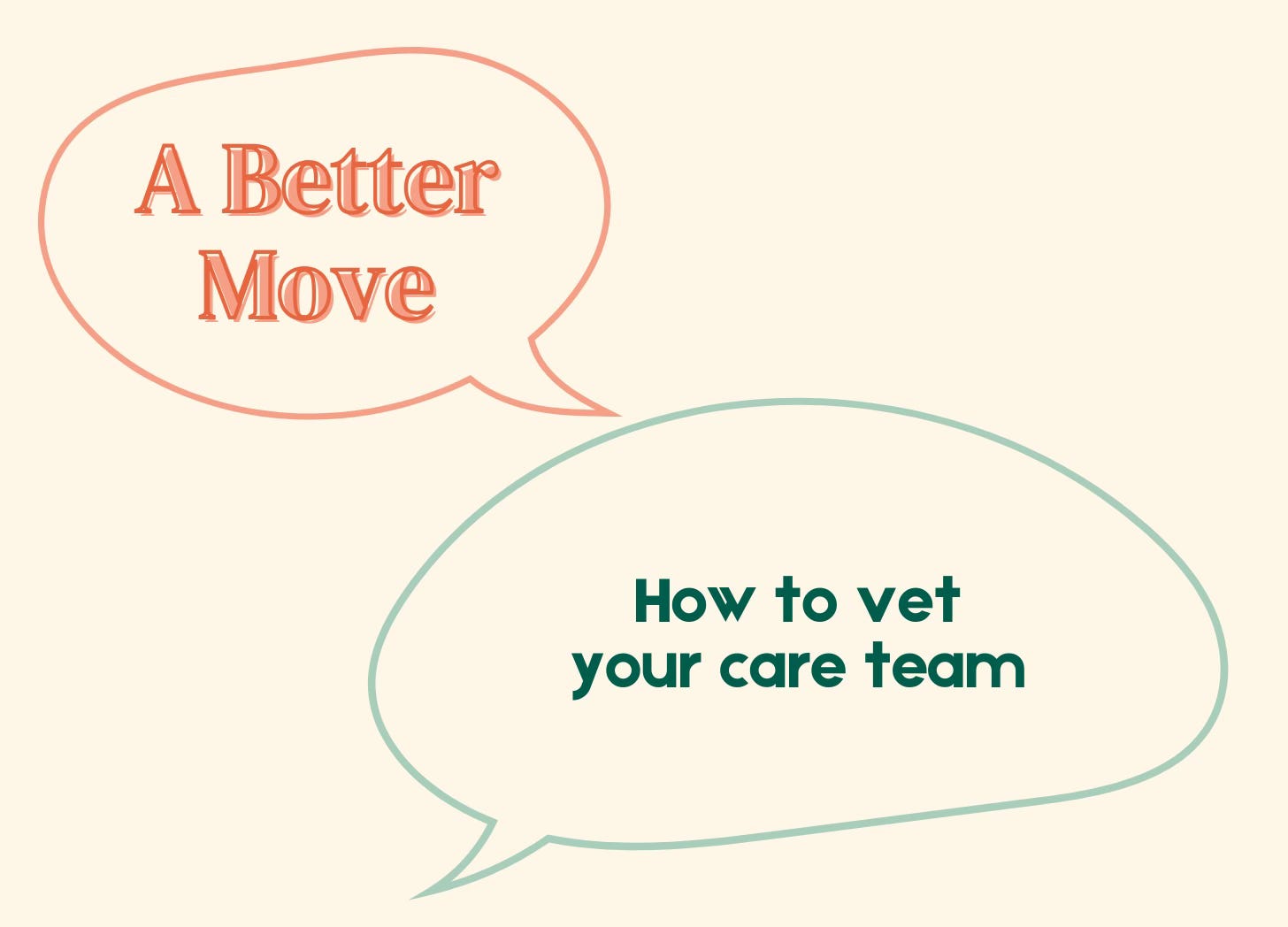We live fiercely by the motto of “you don’t know what you don’t know” at Alive and (un)Well, and share the collective belief that shame has no place in trying to do and be better when it comes to health. While we’re not medical professionals, we are humans who find ourselves in a lot of head-scratching situations. This column is dedicated to uncovering those tricky moments, and giving suggestions on how they could be better handled. Growth looks good on you, friends!

The sitch:
It took me many years as a “professional” patient to understand that I hold a lot of power in my health care interactions — much more than the system has led me to believe. So many of us are taught that doctors, surgeons, specialists, and therapists are seemingly untouchable because they excel in their fields and have an impressive amount of schooling and pedigree behind them. And while that’s true and should be respected, they’re still humans who make mistakes and don’t know our bodies and minds as well as the people (that’s you!) who carry them around all day. They are also beholden to insurance companies (in the U.S., at least), which means we have to use our power selfishly, because ultimately we’re the ones footing the bill — financially, mentally, emotionally, and physically.
So that leads us to today’s lesson: how to vet and interview potential members of your medical team, because I want you to learn so, so much sooner than I did.
The flub:
There is a delicate line between earning trust and giving up our autonomy, and unfortunately some of it depends on a person’s individual knowledge about health (which, in general, I loathe that so much rests on this skill). For example, if you don’t know a lot about the field of cardiology quite yet because you only have a suspected heart condition as opposed to many years of being diagnosed and treated, it can be difficult to know the types of questions to ask, right? This is why I think it’s so important to have a quasi-standardized set of questions that can be applied to most phone calls, consults, and appointments.
Because you know what happens when we as patients don’t do our own homework? We settle! We believe that subpar health care is what we deserve, and that the reality we’re going through is as good as it’s ever going to get. And sometimes, that is true — especially if you live with an ultra rare disease or have geographical constraints when it comes to your options. But with telehealth more popularized these days, those specific situations are (thankfully) a little less common.
To me, one of the biggest errors a patient can make is wielding around unwavering faith in other people; this deep-seated belief that every single medical professional you come across has the best of intentions — and that’s simply not true. And that’s not a dig against doctors by any means, it’s a statement of truth because not every single provider is the right fit for every individual. Some of us need a blend of empathy, humanity, and a warm rapport. Others of us require straight facts and no sugar coating. Personally, I seek out doctors who have a lot of experience with complex patients, and don’t talk down to me. I don’t want layman’s terms, I want the anatomical explanations — show me the charts, the 3D organ, pull up the study in front of me. Teach me so I can do my own research too, and then subsequently educate the people around me.
The better move:
Be prepared! Come up with a list of boilerplate questions that matter to you and have them written down. Even better? Have two separate lists, one for office staff and another for first-time appointments. Remember, no matter their attitude, this is their job but it is your life. They are literally getting paid to talk to you, to treat you; and you are not. You are trying to survive in a world that makes it pretty damn hard to do so, and it is your right to ask questions and be satisfied with the answers.
✅ Step #1: Do some preliminary research prior to even picking up the phone. Read a provider’s background as provided by the office or hospital, see if you can find any research papers or studies they’ve published, and get a pulse on past patient testimonials (I tend to use Healthgrades as a starting point). This will help you narrow down on your search of who you want to call and schedule a consultation with.
✅ Step #2: Have a succinct list of questions to ask office staff if it feels appropriate.
Here are a few I like, in addition to queries about what insurance they accept and their office hours:
How does the provider like to communicate with patients? (e.g., through a patient portal, email, text, phone calls, only in-person appointments)
What’s the average age of patients they tend to see? Do they have experience with patients who have X or Y? (Side note: This is a really important one for me because I’m not an easy case to crack. When I was initially searching for a hematologist, I called around until I found a doctor who specializes in autoimmune patients.)
Are patients able to get same-day appointments for urgent matters? How far out do you typically book established patients?
✅ Step #3: Now, have another list of questions to ask a provider that you’re seeing for the first time. I recommend you have them in writing because I’ve noticed doctors are more likely to answer my queries because they feel passively “cornered,” if you will. But it’s also very telling as to the fit of a provider if you feel rushed or are abruptly cut off from your line of questioning.
Here are a few that I come back to again and again:
What is your philosophy on medication and pain management? (If you live with any kind of chronic pain condition, you know that understanding how a doctor views pain, and a patient’s ability to live with it, is paramount.)
What do you think is a realistic goal for my treatment? (e.g., completely pain-free, slowing down disease progression, better quality of life, etc.)
How available do you make yourself to your patients? Is there an after-hours or weekend phone line that patients can use?
TL;DR
Be careful with implicitly trusting every single health care provider you meet and let treat you. It’s your right as a patient to put their feet to the proverbial fire and interview them. No idea where to start? Write down what your ideal doctor or therapist is like. Then, develop questions that hone in on those areas. You are worth it, and your life depends on it.







